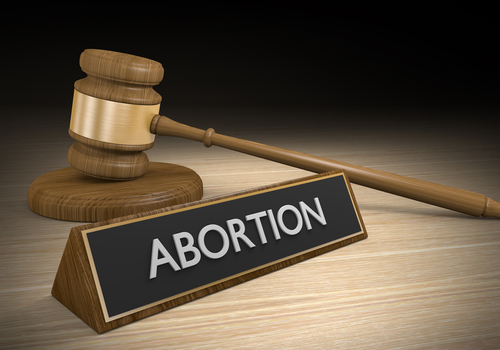Citizen plaintiffs can sue to enforce Texas fetal heartbeat bill; could Uber drivers be liable?

Image from Shutterstock.
A new Texas law that bans abortions after the detection of a fetal heartbeat has an unusual enforcement provision: Private citizens can sue abortion providers and others who knowingly help pregnant women violate the restrictions.
No state official is authorized to enforce the law, a provision that appears intended to prevent abortion providers from suing the state in federal court to block enforcement, report the New York Times and the Texas Tribune.
Under the law, abortion clinics would be lawsuit defendants in citizen lawsuits, rather than plaintiffs filing a legal challenge against the state.
While other kinds of laws authorize private citizens to sue for enforcement, such lawsuits are in addition to and in support of state enforcement.
“It’s a very unique law, and it’s a very clever law,” said Josh Blackman, a constitutional law professor at the South Texas College of Law in Houston, in an interview with the Texas Tribune. “Planned Parenthood can’t go to court and sue Attorney General [Ken] Paxton like they usually would because he has no role in enforcing the statute. They have to basically sit and wait to be sued.”
The law, which takes effect Sept. 1, prevents abortions at about six weeks of pregnancy. It contains an exception only for medical emergencies but not for rape or incest. Current caselaw protects the right to abortion until the point of viability, which happens at about 23 or 24 weeks of pregnancy, according to the New York Times.
Citizens who successfully sue under the Texas law are entitled to an award of at least $10,000. Any American can sue. Suits can be filed by any Texas plaintiff in the home county of that Texas plaintiff, forcing abortion clinics to defend a suit that could be in a court hundreds of miles away.
Melissa Murray, a professor at the New York University School of Law, talked about the reach of the law in an interview with the New York Times.
“If the barista at Starbucks overhears you talking about your abortion, and it was performed after six weeks, that barista is authorized to sue the clinic where you obtained the abortion and to sue any other person who helped you, like the Uber driver who took you there,” Murray said.
Texas Gov. Greg Abbott signed the bill into law in May, soon after the U.S. Supreme Court agreed to hear a challenge to a Mississippi law that bans most abortions after 15 weeks of pregnancy.
Hat tip to @cindi_leive.
Write a letter to the editor, share a story tip or update, or report an error.


